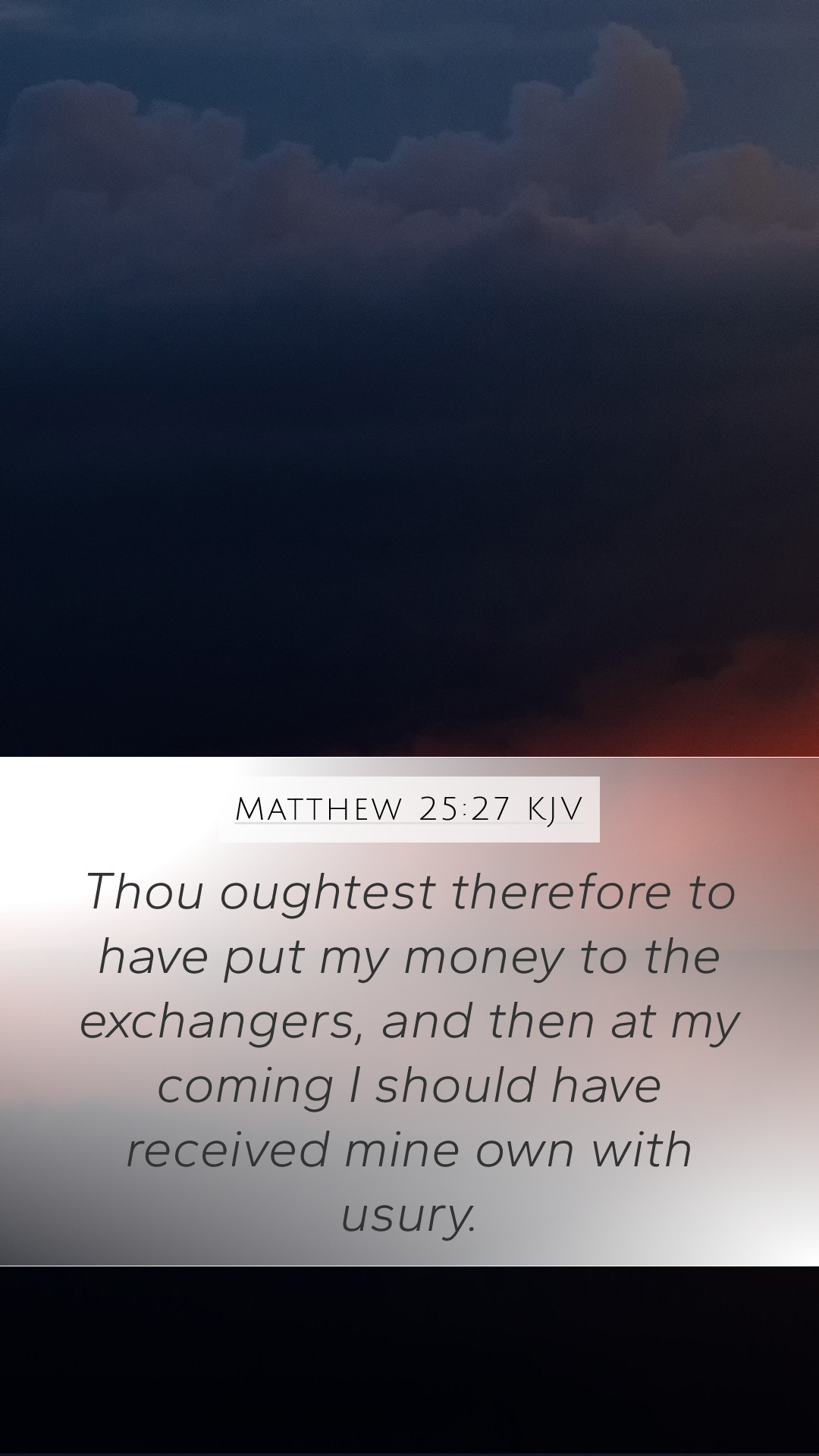Bible Verse Commentary on Matthew 25:27
Verse: "Thou oughtest therefore to have put my money to the exchangers, and then at my coming I should have received mine own with usury."
Meaning of Matthew 25:27
This verse is part of the Parable of the Talents. The master chastises his servant for failing to wisely invest the resources he was entrusted with. The expressions “put my money to the exchangers” reflects the expectation of responsible stewardship. The master implies that even minimal effort, such as engaging with moneychangers, would have yielded a profit, indicating that he expected his servants to live actively and faithfully with what they were given. The essence is that there is an expectation from God for us to utilize our gifts, talents, and resources wisely.
Barnes explains this verse in the context of accountability. He suggests that the servant had the opportunity to put his talent to profitable use but instead chose to bury it out of fear. Here, the phrase “put my money to the exchangers” symbolizes taking initiative to create a return, underscoring the importance of practical involvement in Gospel work and life stewardship. The servant's inaction is a call for believers to act and be fruitful, aligning with divine expectations.
Clarke elaborates on the meaning of 'usury' as not the negative connotation it holds today but rather as the legitimate interest on money. He emphasizes that this command suggests a necessary and industrious approach to the resources given to us. Clarke notes that the behavior of the servant who hid his talent serves as a warning against inactivity in one’s spiritual life. The narrative encourages believers to engage with and multiply their God-given resources actively.
Key Insights and Application
-
Biblical Exegesis: This passage emphasizes the importance of stewardship and responsibility. Believers are called to actively engage with their gifts.
-
Understanding Scripture: The context of this parable reveals expectations of growth and productivity in one's spiritual journey.
-
Scripture Analysis: The verse challenges individuals to evaluate how they utilize the resources and opportunities God provides.
-
Application to Daily Life: This teaching compels Christians to not only recognize their spiritual talents but to work actively in service for God’s kingdom.
Related Bible Verses
- Luke 19:23 - "Wherefore then gavest not thou my money into the bank, that at my coming I might have required mine own with usury?"
- 1 Peter 4:10 - "As every man hath received the gift, even so minister the same one to another, as good stewards of the manifold grace of God."
- Ecclesiastes 11:6 - "In the morning sow thy seed, and in the evening withhold not thy hand: for thou knowest not whether shall prosper, either this or that, or whether they both shall be alike good."
Conclusion
In summary, Matthew 25:27 serves as a compelling reminder about the significance of using our God-given resources wisely. By heeding its lessons on stewardship and responsibility, believers are equipped to maximize their contributions to God's work. Engaging in bible study insights and understanding difficult Bible passages will empower individuals on their faith journey. Through bible verse explanations and thorough bible verse commentaries, one can find clear paths to implementing these valuable truths into daily life, thereby honoring the expectations set forth by our Master.


